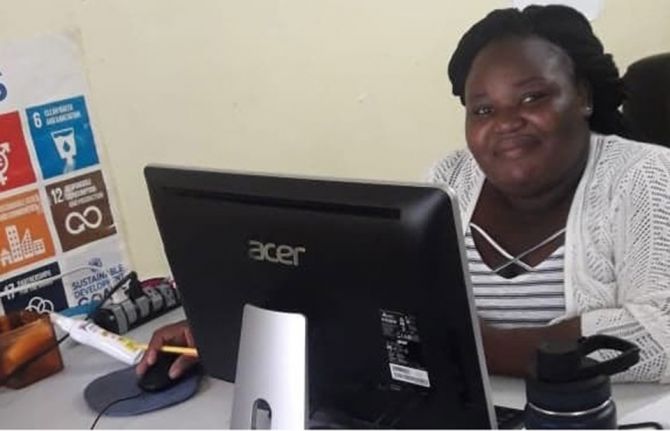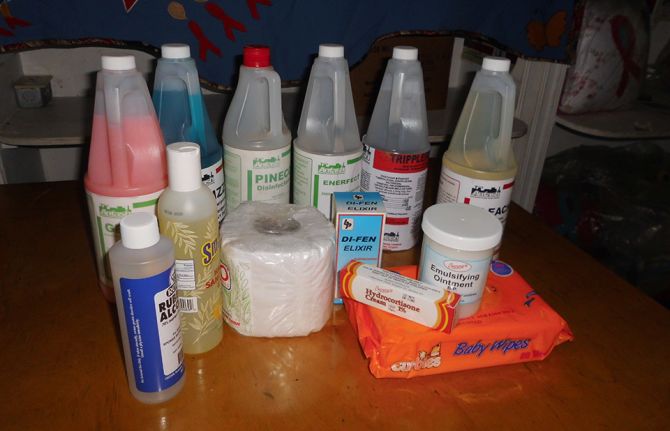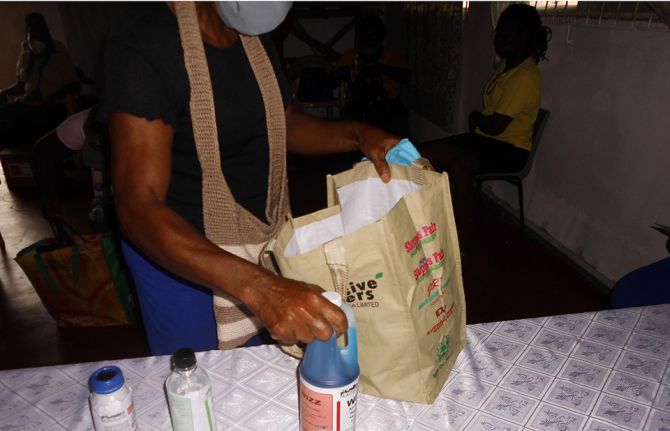



Feature Story
“Physical distance, not social distance”: supporting Jamaican women living with HIV during COVID-19
21 September 2020
21 September 2020 21 September 2020The socioeconomic impact of COVID-19 is clear. People have lost incomes. Children are out of school. Food and housing insecurity are on the rise. And there has been an increase in domestic violence.
But for many women living with HIV in Jamaica, there are added layers of stress. According to the Jamaica Community of Positive Women (JCW+), many of their clients reported having received only one month’s supply of HIV treatment, although they were hoping for the recommended three months. New screening protocols at certain clinics have made some people feel exposed to unfamiliar health-care staff and unexpected disclosure of their HIV status. A few women report not having been able to access contraception on time.
According to the Coordinator of JCW+, Olive Edwards, the pressure of dealing with both pandemics has had a huge mental health impact on women living with HIV.
“Uncertainty is taking a toll,” she said. “It has disrupted life and people are worried. Some are struggling to cope with these feelings of constant uncertainty.
JCW+’s main objective for 2020 was to provide community support for women living with HIV in order to improve treatment adherence and reach viral suppression. When COVID-19 hit in March, they were presented with an added challenge. How would they address women’s new needs?
UNAIDS Jamaica’s COVID-19 emergency response contributed hygiene supplies to care packages. JCW+ used these as an entry point for connecting with clients. Women were provided with soap, household disinfectant and bleach and were shown during peer-share sessions how to use those products, along with masks made by a community mobilizer.
From there, the organization linked women to the Positive Health and Dignity Movement and treatment adherence projects. JCW+ participants prepared personal development plans with a focus on treatment adherence, education, job training and certification goals, where necessary. They keep in contact with the care teams in order to ensure access to optimal health and social support services. They have conversations to keep hope alive and send text reminders to reinforce key health and well-being messages.
“Community needs to be engaged at this time. Managing COVID-19 is about physical distance, not social distance. We felt women needed to meet and talk,” Ms Edwards said. They’ve limited support group sessions to eight people at a time.
According to the UNAIDS Country Director for Jamaica, Manoela Manova, the AIDS response must now strike a delicate balance.
“We must address standing health-care and human rights priorities as well as the immediate physical needs triggered by the COVID-19 response,” Ms Manova said.
Going forward, Ms Edwards says JCW+’s advocacy priorities are ensuring that the HIV response is not neglected because of COVID-19 and ensuring the most marginalized people are caught by state social safety nets.
Ms Edwards asked that UNAIDS continue to “feel the pulse of what is taking place” and support community outreach strategies that are relevant to Jamaican culture.



